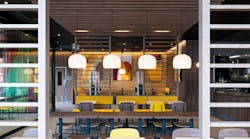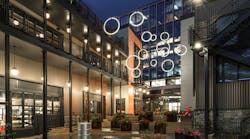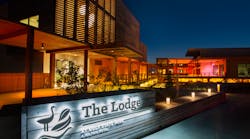The UK-government's Technology Strategy Board in collaboration with the Department for Environment, Food and Rural Affairs (Defra) has taken the next step in its GBP 1.2 million Ultra-Efficient Lighting (UEL) competition.
The agencies announced the solid-state lighting (SSL) competition back in January, and have now selected six winners —Cambridge Consultants Ltd, Juice Technology Ltd, Marl International Ltd, PhotonStar LED Ltd, Tridonic Atco (UK) Ltd, and Zeta Controls Ltd— to participate in Phase 1 of the program.
Each of the Phase 1 winners will get GBP 40,000 to develop a feasibility study of their proposed SSL concepts. The Technology Strategy Board and Defra will review the studies in September and select the most promising of the proposed technologies to receive additional funding.
The agencies plan to announce Phase 2 winners in early October. Those companies could receive up to GBP 450,000 to develop and evaluate prototypes or demonstration units.
UEL program goals
The goal of the program is to help the companies become leaders in energy-efficient lighting and also to ultimately contribute to reduced energy consumption in homes. The contracts were awarded through the Small Business Research Initiative (SBRI), which is administered by the Technology Strategy Board.
Mark Glover, the head of the SBRI, said, "Ultra-energy-efficient lighting could transform Britain’s homes and energy use. The more efficient the lighting, the more money we save on our energy bills. At the end of the demonstration period, we want to see high-quality, compact ultra-efficient lighting that everyone would be happy to use at home. We have the opportunity to become a world leader in the manufacture of this technology, which would create new jobs and boost the British economy."
Defra Environmental Minister Lord Henry said, "It is vital that all aspects of society think about what they can do to live more sustainable lives and help to preserve the natural resources we have. Efficient lighting can also help consumers make significant savings on their energy bills. This exciting competition gives six companies the opportunity to put Britain at the forefront of the global effort to produce new innovative and low-energy products."
Cambridge Consultants' SSL lamp research
At least one of the Phase 1 winners has revealed a focus of its planned research. Cambridge Consultants plans to use the funding that it received on a feasibility study for plans to design a "low-cost, ultra-efficient lamp that can be made anywhere in the world."
"Our goal is to create an LED lamp with a quality of illumination that consumers will actually like, that can be energy efficient and made at a cost that makes a realistic alternative to today's low energy light bulbs," said Craig Webster, Commercial Director & Head of Clean Technology at Cambridge Consultants.
"By making that design available to multiple manufacturers, we can encourage a cost-competitive manufacturing environment to supply lamps in high volumes at the lowest commercial cost to the UK. This means that for consumers, the product should more than pay for itself in energy savings, making it especially commercially attractive."
Other Phase 1 winners
The other Phase 1 winners have varying backgrounds with LEDs and SSL. Juice Technology Ltd is an R&D company that has developed technology available through OEM relationships with companies such as Sea Gull Lighting. Juice has developed 92% efficient LED dimming technology that works over a range of light output from less than 10% to 100%. The company is also touting a high-frequency AC-voltage power distribution scheme for LED lighting that it claims to be more efficient than existing AC distribution or DC schemes such as that supported by the eMerge Alliance.
Marl International Ltd has long been involved with LED technology first in applications such as indicators and panel lamps. The company now designs and manufactures a broad range of LED products for general lighting and decorative and architectural applications.
PhotonStar LED Ltd began operations in 2007 focused on reducing cost and increasing efficiency in LED lighting for commercial and residential applications. The company now offers a wide varied of LED-based luminaires.
Tridonic has been a leading supplier of lighting components such as dimmable electronic ballasts for fluorescent lighting, and now has a family of LED-based products. The TALEXX LED line includes lighting for refrigerated cases, building-block LED modules, LED drivers, and other products.
Zeta Controls Ltd includes an LED lighting group among other business entities. The company has developed LED lighting systems, LED signage, LED fluorescent replacement tubes, and LED panels. The company is also focused on off-grid applications and in fact Zeta has a solar-focused business unit.




